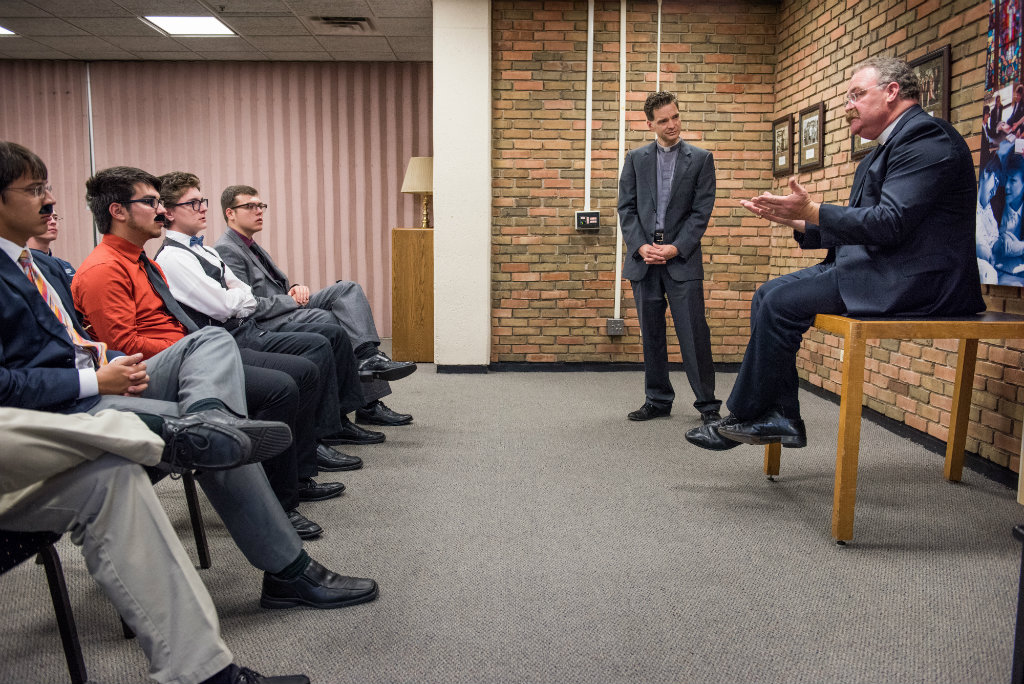
by Matthew C. Harrison
Jesus grabbed me by the neck in 1962 at a font in little old Bethel Lutheran Church in the Iowa farming town of Lawton. I have no recollection of a time when I did not know that Jesus was my Savior. I often think that I grew up at the “end of sanity.” There wasn’t much crime to speak of. No drugs really. I walked to and from school from kindergarten on with no worries of abduction or sexual predators. Culture and church, Boy Scouts, school — all for the most part supported a similar morality and a favorable view of Christianity. But things change.
Today’s world is a post-modern cultural collage. And that’s not all bad, mind you! Prior to the fall of the Berlin Wall, teetering modernism was in its last gasp, asserting that this or that philosophical or political theory could encompass all truth. Would science unlock the mysteries of life and the universe? People believed the answer was, “Yes!” The modernists discounted the spiritual realm, opting for this or that psychological theory to explain the human experience. They all grasped for truth and found parts of it, but the complexities of the human individual, the collective community, simply evaded encapsulation. And every new discovery, whether at the atomic level or about the universe, has unfolded complexity upon complexity. The most shocking thing is the repeated discovery of order — ordered genetic information in biology and complex order in the universe. It was famously asserted that the probability of life coming about randomly would be about the same odds as a tornado sweeping through a junkyard and assembling a 747, fully fueled and ready for takeoff. Atheism requires too much faith for me.
The question I had to grapple with — the question everyone has to deal with — is, “What do you make of Jesus?” Most people will respond with morality. Jesus was a great man who left the world great ethics, like “Love your neighbor as yourself.” But Jesus’ ethics can all be found in various other religions. What makes Jesus unique is His claim to be the divine Son of God who came to give His life as a ransom (Mark 10:45).
And did He or did He not rise from the dead? The resurrection accounts of the Bible have all the sober signs of reality, including the complexity of details told from different viewpoints, which are not easily harmonized. I also find it compelling that there are no records of squabbles between Jesus’ living followers over what actually took place. Others discounted or contested the facts, but they were either contemporary opponents of Jesus or came much later after Jesus’ immediate followers were all dead. And finally, Jesus’ apostles preached the death and resurrection of Jesus and suffered all, even death, to do so. They believed it happened.
I believe it too, because “Faith comes by hearing and hearing by the word of God” (Rom. 10:17). Jesus has grabbed my black heart with forgiveness. My reason follows after, in the wake of faith, and convinces me that the universe is simply too ordered and too complex to exist by chance. And the only way that the life of Jesus makes any sense is if what the Bible says about Him actually happened.
The Rev. Dr. Matthew C. Harrison is president of The Lutheran Church–Missouri Synod.




Thank you – It is amazing that our Lord Jesus is still talking with us from the pulpits of the world- if one would search with an open mind. Granted we can come away from our congregations not with the words of a complete sermon, when a few short sentences may suffice until the next Sunday. Even in this century his voice cannot be silenced entirely everywhere.